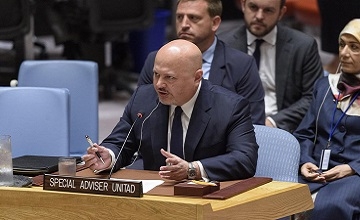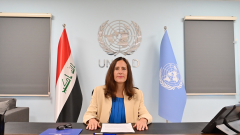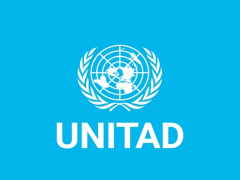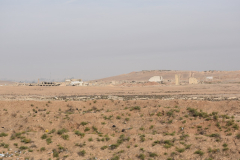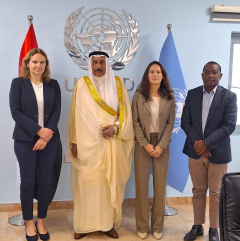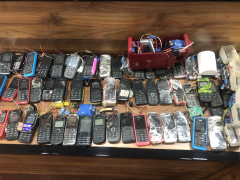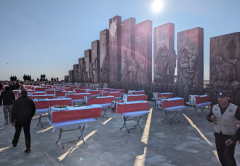UNITAD Reports Strong Progress in First Half of 2019
New York, United States of America – Significant progress has been made in the work of the UN Investigative Team responsible for investigating ISIL crimes reported Mr. Karim Asad Ahmad Khan, Special Adviser and Head of the Investigative Team to the Security Council on Monday. Mr. Khan noted that digital, documentary, testimonial and forensic evidence is now being collected in order to support the prosecution of members of the Islamic State in Iraq and the Levant (ISIL/Da’esh) for their atrocity crimes committed in Iraq.
In the last two weeks alone, UNITAD had gained access to more than 600,000 videos related to ISIL crimes, as well as over 15,000 pages of internal ISIL documents. Initial investigative work focused on three areas, he noted, citing attacks committed by ISIL against the Yazidi community in the Sinjar district in August 2014, crimes committed by ISIL in Mosul between 2014 and 2016, and the mass killing of unarmed Iraqi air force cadets from Tikrit Air Academy in June 2014. In a positive development, the Team was now identifying and strengthening channels for potential use of this evidentiary material in domestic proceedings in Iraq in line with the Terms of Reference of the Team, while a number of other States had approached the Team with requests for support. Mr. Khan noted that the Team anticipated being able to provide tangible support to at least one ongoing case within the next two months.
“We have sought to ensure that the experiences and voices of survivors, witnesses and communities are placed at the centre of its work,” he said, noting that all communities — Shia, Sunni, Yazidi, Christian, Kaka’i, Shabak and Turkmen — have been impacted by the crimes of ISIL. Stressing that the Investigative Team’s cooperation with the Government of Iraq has remained crucial in the delivery of its mandate, he said that tangible evidence of collaboration can be found in the collection of forensic material from mass grave sites and the transmission of evidentiary material to the Team by Iraqi national authorities. Going forward, the Team’s work remains dependent on the continued support of the Security Council and the international community more broadly.
Through engagement with victims, cooperation with national and regional actors and dialogue with religious bodies, two fundamental realities have been revealed, he said. First, that the scale and barbarity of the crimes committed by ISIL have ultimately served not to divide but to unify. Second, the ultimate success of the work of UNITAD will depend on the Investigative Team’s ability to draw on its independent, impartial status in order to harness this unity of purpose and make its work the product of a collective endeavour — a partnership between the Council, the victims and survivors of ISIL, national authorities and local actors, non-governmental organizations and academic institutions. Council members welcomed the “remarkable progress” that UNITAD has achieved in a short period of time, and welcomed the cooperation between the Investigative Team and the Government, as well as its engagement with survivors, witnesses, religious groups and local communities.


